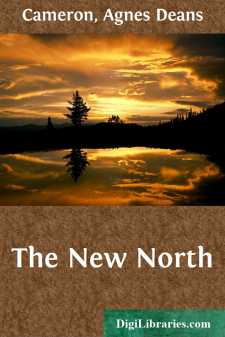Categories
- Antiques & Collectibles 13
- Architecture 36
- Art 48
- Bibles 22
- Biography & Autobiography 815
- Body, Mind & Spirit 144
- Business & Economics 28
- Children's Books 18
- Children's Fiction 14
- Computers 4
- Cooking 94
- Crafts & Hobbies 4
- Drama 346
- Education 58
- Family & Relationships 59
- Fiction 11833
- Games 19
- Gardening 17
- Health & Fitness 34
- History 1378
- House & Home 1
- Humor 147
- Juvenile Fiction 1873
- Juvenile Nonfiction 202
- Language Arts & Disciplines 89
- Law 16
- Literary Collections 686
- Literary Criticism 179
- Mathematics 13
- Medical 41
- Music 40
- Nature 179
- Non-Classifiable 1768
- Performing Arts 7
- Periodicals 1453
- Philosophy 65
- Photography 2
- Poetry 896
- Political Science 203
- Psychology 44
- Reference 154
- Religion 515
- Science 126
- Self-Help 85
- Social Science 82
- Sports & Recreation 34
- Study Aids 3
- Technology & Engineering 59
- Transportation 23
- Travel 463
- True Crime 29
Our website is made possible by displaying online advertisements to our visitors.
Please consider supporting us by disabling your ad blocker.
The New North
Description:
Excerpt
CHAPTER I
THE MENDICANTS REACH WINNIPEG
"We are as mendicants who wait
Along the roadside in the sun.
Tatters of yesterday and shreds
Of morrow clothe us every one.
"And some are dotards, who believe
And glory in the days of old;
While some are dreamers, harping still
Upon an unknown age of gold.
"O foolish ones, put by your care!
Where wants are many, joys are few;
And at the wilding springs of peace,
God keeps an open house for you.
"But there be others, happier few,
The vagabondish sons of God,
Who know the by-ways and the flowers,
And care not how the world may plod."
Isn't it Riley who says, "Ef you want something, an' jest dead set a-longin' fer it with both eyes wet, and tears won't bring it, why, you try sweat"? Well, we had tried sweat and longing for two years, with planning and hoping and the saving of nickels, and now we are off!
Shakespeare makes his man say, "I will run as far as God has any ground," and that is our ambition. We are to travel north and keep on going till we strike the Arctic,—straight up through Canada. Most writers who traverse The Dominion enter it at the Eastern portal and travel west by the C.P.R., following the line of least resistance till they reach the Pacific. Then they go back to dear old England and tell the world all about Canada, their idea of the half-continent being Euclid's conception of a straight line, "length without breadth."
Sir Wilfred Laurier
But Canada has a third dimension, a diameter that cuts through the Belt of Wheat and Belt of Fur, beginning south at the international boundary and ending where in his winter-igloo the Arctic Eskimo lives and loves after his kind and works out his own destiny. This diameter we are to follow. To what end? Not, we hope, to come back like him who went from Dan to Beersheba to say "All is barren," but to come near to the people, our fellow-Britons, in this transverse section of a country bigger than Europe. We want to see what they are doing, these Trail-Blazers of Commerce, who, a last vedette, are holding the silent places, awaiting that multitude whose coming footsteps it takes no prophet to hear.
We will take the great waterways, our general direction being that of all the world-migrations. Colonization in America has followed the trend of the great rivers, and it has ever been northward and westward,—till you and I have to look southward and eastward for the graves of our ancestors. The sons and grandsons of those who conquered the St. Lawrence and built on the Mississippi have since occupied the shores of the Red, the Assiniboine, and the Saskatchewan. They are laying strong hands upon the Peace, and within a decade will be platting townships on the Athabasca, the Mackenzie, and the Slave.
There has always been a West. For the Greeks there was Sicily; Carthage was the western outpost of Tyre; and young Roman patricians conquered Gaul and speculated in real estate on the sites of London and Liverpool. But the West that we are entering upon is the Last West, the last unoccupied frontier under a white man's sky....


